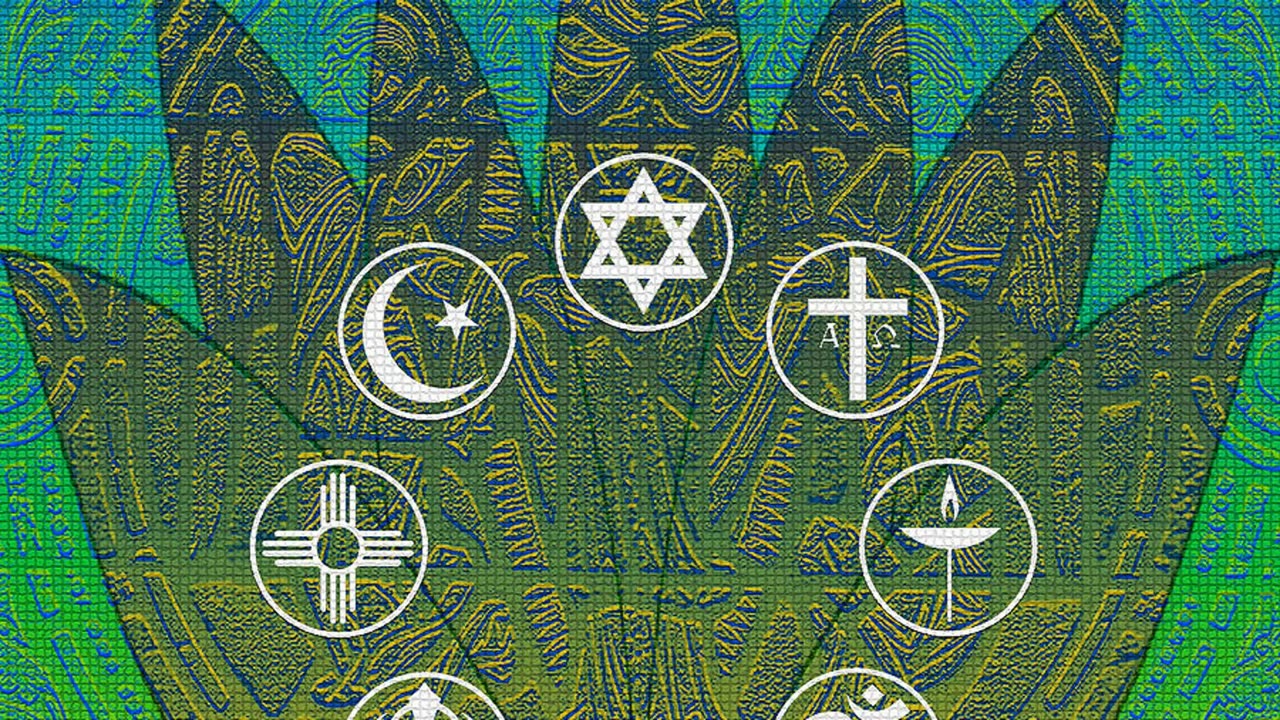Premium Only Content

What is Omnism?
The concept of Omnism, a term coined by Philip James Bailey, presents a fascinating perspective on religious belief. Initially defined as a belief in all religions, contemporary understanding has evolved. While sharing similarities with syncretism—the blending of different belief systems—Omnism offers a nuanced approach. It's not simply about accepting the literal truth of every religious doctrine, but rather recognizing the potential validity and inherent worth within each.
Many self-identified Omnists today emphasize the presence of shared truths across diverse faiths. They posit that no single religion holds a monopoly on ultimate truth, but rather that various religions offer pieces of a larger, more comprehensive puzzle. This perspective is supported by the Oxford English Dictionary, which defines an Omnist as believing "in a single transcendent purpose or cause uniting all things or people." This suggests a unifying principle underlying diverse religious expressions.
Historical figures like Edward Herbert, the first Deist, and William Blake, in his poem "All Religions are One," expressed similar ideas centuries ago. The synthesis of beliefs is not new; movements like Socinian Christianity and the growth of Unitarian Universalism demonstrate a long history of exploring common ground between different faiths. Organizations like the Church for the Fellowship of All Peoples and The Parliament of the World's Religions actively pursue interfaith dialogue and collaboration. These efforts highlight a growing global recognition of shared values and the potential for cooperation across diverse religious traditions.
The evolution of Omnism from a simple "belief in all religions" to a more nuanced acceptance of the legitimacy of all faiths reflects a shift towards inclusivity and understanding. It underscores the power of recognizing shared humanity amidst differing beliefs. This perspective fosters tolerance, mutual respect, and the potential for constructive dialogue. The inherent diversity of religious expression, far from being a source of division, can become a source of enrichment and a pathway toward a more compassionate and unified world. The quest for understanding, empathy, and common ground remains a powerful force for positive change, reminding us that our shared humanity often surpasses our theological differences.
-
 LIVE
LIVE
PudgeTV
3 hours ago🟣 Greak: Memories of Azur | Gaming on Rumble | September Charity Water Campaign
77 watching -
 LIVE
LIVE
LarryDickmanGaming
11 hours agoI am what I am and that's all that I am.
51 watching -
 2:39:02
2:39:02
The Pascal Show
19 hours ago $2.81 earned'HE'S THE DEVIL!' Former Mother In Law Breaks Silence On Jake Haro & Emmanuel Haro Case
21.4K4 -
 5:30:10
5:30:10
SpartakusLIVE
14 hours ago#1 Verdansk Sniper gets HACCUSATIONS because of INSANE Headshots
65.1K4 -
 46:18
46:18
SB Mowing
3 days agoShe was LOSING HOPE but this SURPRISE CHANGED EVERYTHING
54.3K49 -
 10:00:10
10:00:10
ItsLancOfficial
14 hours agoWE LIVE 🔴WE LIVE 🔴 SUNDAY SUNDAYS!!!!!!! TARKOV
44.1K3 -
 4:09:32
4:09:32
EricJohnPizzaArtist
6 days agoAwesome Sauce PIZZA ART LIVE Ep. #59: Are You Ready for some FOOTBALL with GameOn!
55.1K8 -
 1:21:43
1:21:43
Jake Shields' Fight Back Podcast
19 hours agoJake Shields and Paul Miller!
86.5K148 -
 1:20:41
1:20:41
TRAGIKxGHOST
11 hours agoTrying to get SCARED tonight! | Are You SCARED!? | Screams Beyond Midnight | Grab a Snack
32.7K6 -
 5:21:24
5:21:24
StuffCentral
12 hours agoI'm baaack (no you can't play with me.. unless you a healer)
30.6K10